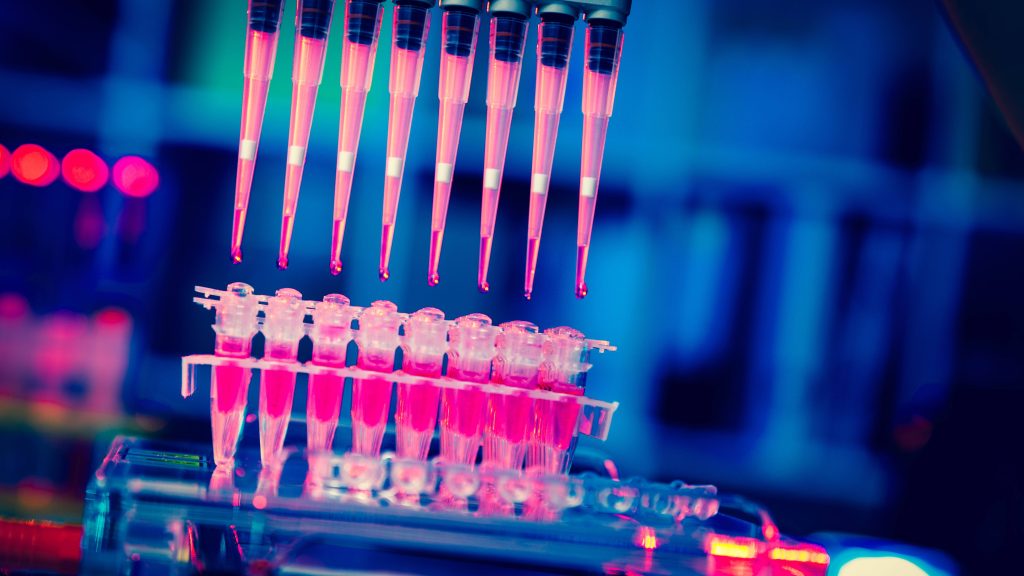-
Cancer
Research fuels advances in bile duct cancer care

Bile duct cancer, also known as cholangiocarcinoma, forms in the thin tubes that carry bile from your liver to your gallbladder and small intestine. Though relatively rare, cholangiocarcinoma is often diagnosed in later stages, making it more difficult to treat, and cases in the U.S. are increasing.
In a review article published in Nature Reviews Clinical Oncology in 2023, lead author Sumera I. Ilyas, M.B.B.S., and co-authors share advances in diagnosing, staging and treating bile duct cancer. Dr. Ilyas is a Mayo Clinic physician-scientist and a transplant hepatologist whose research focuses on the immunobiology of liver cancer. Here is a summary of their review:
The immune microenvironment of bile duct tumors promotes their growth.
Dr. Ilyas says bile duct cancers have distinct tumor immune microenvironments (TIMEs). Researchers have begun to understand the complexity of these TIMEs and their relationship with the three different types of cholangiocarcinoma — intrahepatic, hilar and distal. The TIMEs of bile duct cancer have fewer cytotoxic cells — immune cells that help kill mutated and cancerous cells— and more cells that suppress the immune system. TIMEs may affect how the disease progresses and whether it can be treated with immunotherapy.
The genetic profile of different segments of bile duct tumors can also vary, known as heterogeneity. This makes it more challenging to target characteristics of the tumor for treatment.
Researchers are trying to understand how TIMEs help bile duct cancer grow and progress, evade the immune system and resist chemotherapy. Altering the TIME could make treatments more effective, including immune checkpoint inhibitors and other immunotherapy treatments.
Blood and bile samples may help diagnose bile duct cancer earlier.
Diagnosing bile duct cancer early, when it's easier to treat, is a challenge. This is partly because cancer experts don't yet have the right tests and biomarkers to detect cholangiocarcinoma. "Efforts to identify better biomarkers to help diagnose the disease at an early stage and help gauge response to treatment are important," explains Dr. Ilyas. "Currently, there is a great deal of ongoing research focused on the use of tumor DNA in diagnosing and monitoring cholangiocarcinoma in patients receiving treatment."
Dr. Ilyas says research has identified potential biomarkers for cholangiocarcinoma. Researchers are now studying how biomarkers obtained through blood and bile samples from patients can help improve cholangiocarcinoma diagnosis. They are also looking for ways to detect and monitor tumors using liquid biopsies, which use DNA that breaks away from the tumor to circulate in bodily fluids like blood or bile. "Although we anticipate that liquid biopsy may enhance early detection of cholangiocarcinoma, larger scale studies are needed to confirm its effectiveness," she says.
Bile duct cancer treatments are improving.
"Systemic treatment options for cholangiocarcinoma were once quite limited and not very effective," says Dr. Ilyas. Systemic therapies are drugs used to treat cancer, such as chemotherapy, targeted therapy and immunotherapy.
Targeted therapies are drugs targeting mutations that control how cancer cells grow, divide and spread. With a better understanding of the different genetic profiles of bile duct cancer subtypes, cancer experts are developing new treatments tailored to specific types of cholangiocarcinoma. The Food and Drug Administration has approved several new drugs that target specific genetic mutations associated with bile duct tumor growth. "The emergence of targeted therapies has broadened treatment options and, in doing so, given much more hope to our patients," says Dr. Ilyas.
Immunotherapy uses the body's immune system to attack cancer. While immunotherapy has not yet proven effective for treating cholangiocarcinoma, Dr. Ilyas says ongoing research to identify biomarkers and to understand why bile duct cancer doesn't respond to immunotherapy may improve outcomes.
Researchers are also studying liver transplants as a treatment option for cholangiocarcinoma in select patients with certain tumor types. However, Dr. Ilyas says this form of treatment needs further research.
Learn more
Learn about cholangiocarcinoma and find a clinical trial at Mayo Clinic.
Join the Cancer Support Group on Mayo Clinic Connect, an online community for patients and caregivers.
This article first published on the Mayo Clinic Comprehensive Cancer Center blog.







